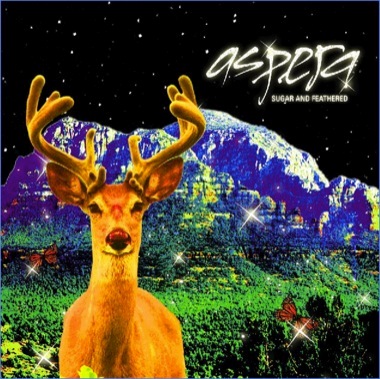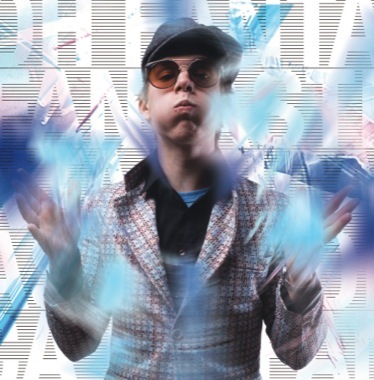
Through the cerebral undergrowth and fantastical thickets of Aspera’s dark imagination comes Sugar And Feathered, the re-release of the elusive Philadelphia-based quartet’s sophomore full-length, re-mastered and packaged with all new artwork. As eerie as it is amiable, the twelve songs of Sugar And Feathered create a conceptual forest breathing with melodies familiar and forgone. The first incarnation of Aspera (then known as Aspera Ad Astra) was originally conceived in the summer of 1996 via long-distance telephone calls between Philadelphia and Little Rock, Arkansas. It was then that Aspera bassist Matt Werth was coaxed to make the great trek to Philly (where he is now proprietor of File 13 Records) to join Justin Tripp, Drew Mills, and Mike Robinson. Within months, the band had recorded a slew of material and began an extensive tour of the US, which drew the attention of Chicago’s Tree Records who paired Aspera with the San Francisco-based group Haleah for a split 7″ in Tree’s Postmarked Stamp Series. Haleah just happened to feature Marc Bianchi (who later went on to form the one man act Her Space Holiday) on keyboards and after getting an earful of Aspera Ad Astra, he released the band’s first full-length album Peace on his own Audio Information Phenomena label in 1998. Although Peace’s shoegaze / psychedelia revivalism found a devout audience, it was Aspera’s contribution to Insound’s Tour Support Series in mid-1999 that captured the distinctly deviant creative longing the band was going for. Insound’s in-house label Tiger Style was impressed enough by the Tour Support EP to again pair up Aspera for a split release, this time with Philly psyche-pop legends, The Lilys. The resulting work served as a sonically dense addendum to the Tour Support EP, furthering Aspera’s leap toward the strange while maintaining an undeniable pop inclination. On this record, Aspera creates songs that bear a passing resemblance to Crocodiles era Echo and The Bunnymen as fed through the dry, trashy production work of Tony Visconti’s T Rex recordings. The experimental nature of Brian Eno and David Byrne’s random sampling on My Life In The Bush of Ghosts mixes with the rudimentary electronics of Bowie’s Scary Monsters, a smattering of 80’s-style synthetic percussion and a fondness for Peter Murphy, conjuring a record with only one non-wayward quality – unrelenting creativity.

